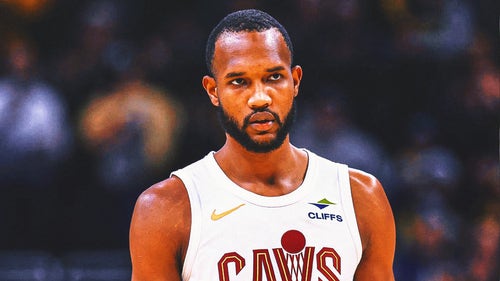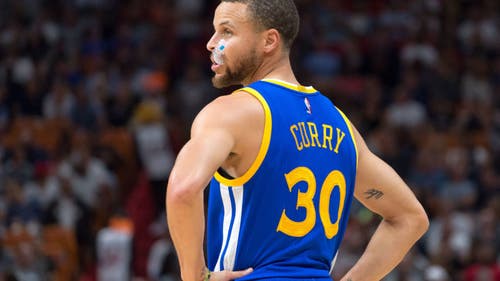
Stevens has a believer in Brown
Not long ago, at a summer coaching camp run by Kansas' Bill Self, the last man to successfully make the leap from the college basketball coaching ranks to the NBA sized up Brad Stevens.
This was a place where each coach in attendance took a different topic and detailed his views as the others — men like Self, Frank Martin, Lawrence Frank, Jamie Dixon, Brian Gregory and Lorenzo Romar — weighed in with their own thoughts. From a coaching perspective, it was heady, interesting stuff. But not a place for the faint of heart.
“I was impressed,” Larry Brown, the only head coach to have won a championship in college and the NBA, told FOXSports.com on Tuesday. “He’s a great kid and he’s bright. I felt a real warmth and admiration for him.”
Stevens, Brown said, handled himself with ease and acuity in a situation that might intimidate other young coaches. Good thing. Because last week, when Stevens, 36, was introduced as the new head coach of the Boston Celtics, he endeavored on one of the most perilous transitions in sports.
The NBA over the past 20 years is riddled with big-name coaching talents who left college only to be swallowed whole by the NBA and spit out the other side, battered, bruised and embarrassed.
Rick Pitino may be on top of the world now, but when he left Kentucky to coach Boston in 1997 he experienced little but failure. He went 102-146 over four seasons and never made the playoffs.
John Calipari, now perhaps the most dominant force in college coaching, had scant success after leaving UMass for the New Jersey Nets. He cracked .500 just once in three seasons, getting into the playoffs in his second season and losing all three playoff games.
The list goes on: Lon Kruger, Tim Floyd, P.J. Carlesimo, Reggie Theus, Mike Montgomery and Leonard Hamilton. They all reached for The League and washed out, fast.
Only Brown in modern times has mastered both worlds. He left UCLA for New Jersey, first, and quickly made the playoffs. Then, having won a national title at Kansas in 1988, he bolted for the San Antonio Spurs. After one tough season there, he made the playoffs in the next two. He eventually won an NBA championship with Detroit in 2004.
“The games are completely different,” he said. “When you’re at a college game, in the second half you probably have to make two or three decisions late. In a pro game you probably make 30. And you times that by 100, and then times that by 30, and there’s a huge, huge difference. And it’s a marathon, not a sprint. College has much fewer games. In the NBA, a lot of these great college coaches — I coached young guys who lost more games in a two-week period than they did their whole college careers. So that’s no fun. That’s a huge adjustment for coaches, too. That’s not easy.”
How hard is it?
“Jerry Tarkanian took over for me in San Antonio and didn’t last 30 games,” Brown said.
Still, Brown told FOXSports.com he thinks Stevens can and will succeed.
So, after a long talk on Stevens and the difference in coaching in college versus the pros, here are the seven things Brown says Stevens must have or do in order to make it through his reported six-year, $22 million contract.
1. Get enough time.
“I’m not of the opinion college coaches can’t succeed [in the NBA],” Brown said. “What I think people have to realize is college coaches that struggled always had bad teams.”
There’s no substitute for time, Brown said — time to learn, time to grow, time to figure out the NBA. Time that’s hard to come by.
“When I left UCLA to go with the Nets, we got off to a terrible start and they had a group of owners who called the meeting who wanted to fire me right there before I’d even finished a quarter of the season. One of the owners, the principal owner, backed me.”
It was a close call. Larry Brown was almost fired, and had he been he most likely would have become another cautionary tale instead of an NBA success story.
2. Gotta have some guts.
Brown didn’t exactly say this, but he told the story that proves the point. He was actually at the meeting where he was almost fired, where his career hung in the balance. He addressed those rich men who wanted his head on a platter. “We’re going to be good,” he remembers saying. “If you want to fire me, fire me.”
They didn’t. The rest, as they say, is history.
3. You must – absolutely must – be able to coach.
Coaching ability trumps the notion that lacking NBA experience will lose you the locker room every time.
“When I recommended guys and owners would say, ‘Oh, he didn’t play in the NBA or he doesn’t have NBA experience and the players won’t respect him,’ I always laughed,” Brown said.
Stevens, by the way, didn’t have an iota of NBA experience of any kind when he was hired.
“When you walk on the court after five minutes they know if you can coach or not,” Brown said. “I don’t care if you coached at some obscure college or the Lakers, if they know you can coach and you can give them a chance to win and make them better, they’re all in. If they don’t feel that way, it doesn’t matter who you are.”
By all accounts, Brown’s included, Stevens knows his stuff. Stevens is — my words, not Brown’s — all Xs and Os, not the used-car salesman/charm persona that Cal, Pitino and Floyd can be known for.
4. Get assistant coaches invested in your success and not their own desire to eventually supplant you.
And, so, eschew the knee-jerk need to hire older, experienced, NBA-tested assistants.
“Now here’s the challenge for Boston,” Brown said. “It’s really vital they put people around Brad who are there to help him grow, who don’t feel they should be the head coach. I always get confused when they hire these head coaches or ex-players players and say, ‘We have to get an older guy next to them to help them. I always thought that was ass backwards. Brad’s done practice plans. He’s broken down films. He’s started from the very bottom. He knows how to coach. So now the challenge for [Celtics GM] Danny [Ainge] is to surround Brad with guys who only care about making sure Brad Stevens is the greatest coach he can be.”
5. Win. Fast.
“Those three- or four-year plans go out the window right away,” Brown said. “They’re so phony."
Which means …
6. Inherit a team good enough to be at least in the hunt for relevance and that final playoff spot.
“I think he can win.”
Brown is serious. He thinks Stevens and the Celtics can win, right now.
The league, Brown points out, is now about point guards. They’re critical, the Heat’s two-peat not withstanding. And Rajon Rondo, for all the talk he’s hard to manage and could clash with Stevens, is an outstanding point guard.
“I’ve spoken with [former Celtics coach] Doc [Rivers] a lot, I’m real close with Doc,” Brown said. “The kid wants to win, he’s bright as hell, he’ll find out Brad wants to win and is bright as hell and I think he’ll be fine. Boston didn’t hire Brad to be anything other than what he is. Rondo wants to win, and I think he’ll find out how smart [Stevens] is, like I did, and I think he’ll respect that.
“If you have Rondo on your team and you have Jeff Green and you have Brandon Bass, you can do all right.”
7. Have the unwavering support of an organization that speaks with one voice, regardless of what every individual in that organization actually thinks.
“It ain’t gonna work unless you have a Danny Ainge who hand-picked him, who’s a bright guy and a loyal guy and who’s going to help Brad grow,'' Brown said. "It wouldn’t work unless you had ownership who trusts Danny and allows him to do his job. And it would never work unless you have one voice. There’s a tremendous disconnect in teams that are successful and teams that are not, the ones where there’s one voice and where there’s not, where they’re all pulling the same way.”
Larry Brown has won in college. He’s won in the NBA. He’s made that jump, twice very successfully. His roadmap is a daunting one, which probably is why no one has successfully navigated it since he last did.
But he believes Stevens will make it work.
“He’s a smart kid. He’s a great coach. And he has a helluva chance.”
You can follow Bill Reiter on Twitter or email him at foxsportsreiter@gmail.com.










